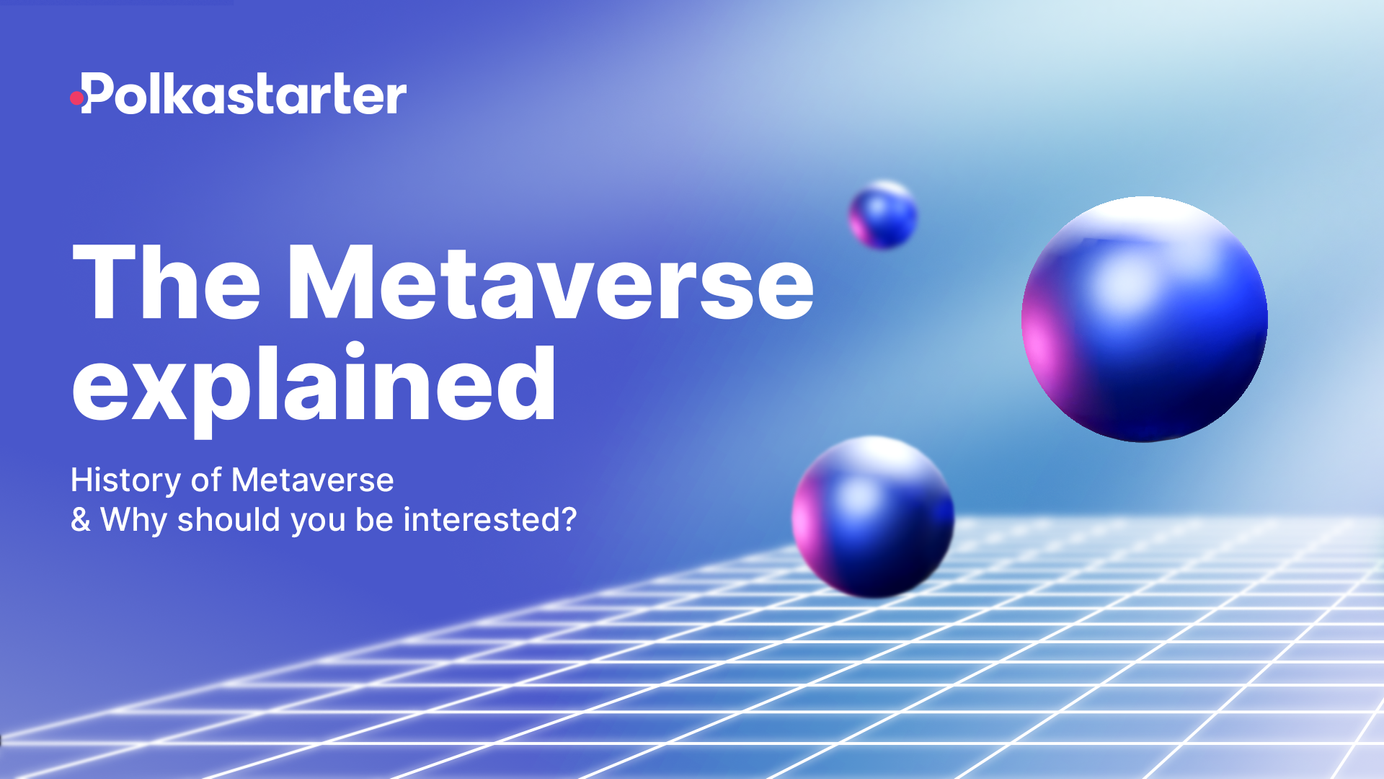
The metaverse explained
The term has become a mainstream buzzword worldwide. How did we get here and, more importantly, why should you be interested?
The word of the year in 2021 may have been "vaccine" but, by the last quarter, what everyone was talking about was the metaverse and the price of virtual land. Although the initial hype may be dwindling, the metaverse remains one of the most promising tech innovations of the following decade and major brands have already started to make their moves.
In October 2021, Mark Zuckerberg took the world by storm by announcing Facebook would be rebranded as Meta to focus on a fully-immersive version of the internet: the metaverse. The term itself has been around for three decades, originally coined by Neal Stephenson in his cyberpunk novel Snow Crash, where users joined a dystopian virtual world by wearing goggles in order to escape reality.
Over time, the metaverse became a term to describe a new 3D iteration of the internet that includes spatial experiences, accurately represented in Spielberg's 2018 feature film “Ready Player One”.
Now, contrary to popular belief, not every digital experience or virtual world is a metaverse, and there will be only one metaverse in the future. We may visit different worlds or spaces within it, but the metaverse will be the shared and social reality bridging the gap between our digital and physical lives.
The key here is immersiveness, and it will be hard to pinpoint when we are actually living in it because technological developments like VR, AR, and MR will be adopted at different rates by different people.
It is clear that the metaverse has the potential to transform the way we socialize, educate, play games and do business. Time to catch up with friends? Attend a concert or paint a mural together! Classrooms and 3D museums will be easily accessible, and you will go grocery shopping from the comfort of your own home. If you like to get your hands dirty, buy a piece of land and start building your own dream world. A beach house? An amusement park? A spaceship? You name it!
Key features
The metaverse is destined to be a unique place. What else will it enable? Here's a quick roundup of some of its most exciting features:
- Digital ownership: through non-fungible tokens (NFTs) and smart contracts, we will be able to certify our ownership over digital assets such as land, spaces, digital objects, art, vehicles and clothes. These certificates will allow us to buy and sell these items, unleashing a whole new economy.
- Creators' economy: the metaverse will not build itself! New opportunities are already emerging for creators, artists and builders –especially early adopters, to monetize their digital products or services. Some will be fully digital, while others may break into the phygital.
- Interoperability: projects focused on interoperability will provide a seamless experience throughout the metaverse, utilizing services from multiple platforms, enabling cross-chain social connections, and performing transactions with a single wallet. In the not too distant future, you will take your newly-acquired PFP bought in OpenSea to attend a work meeting in Mozilla Hubs, then party away at Decentraland along Elvis impersonators before a late-night Twitch session of Illuvium.
- Accessibility: to be a more inclusive and accessible version of the internet. This goes beyond supporting multiple crypto wallets and a wide range of devices like PC, mobile, and VR. Accessibility needs to be front and center during the design process and include assistive technology such as speech-to-text, haptic feedback, screen reading software or speech generating devices.
- Identity: real world limitations will be a thing of the past, the creation of avatars will empower us to build our digital identity from scratch. Much like fashion, we will be able to express our true selves through skins, wearables, facial expressions and movement. Human expression will also be reflected in the collection of on-chain events and activities we attend, which we will show off in the form of attendance tokens.
Metaverse challenges
Now, it isn't all fun and games. Like any new technology, the metaverse will face some challenges on its way to mainstream adoption, and the effects it will have on us are still unclear. Here are some of the main concerns that have been flagged so far:
- Health: if during 2020 and 2021 we discovered Zoom fatigue, will there be a metaverse fatigue as well? There have been reports of "VR hangovers", which can include anything from motion sickness, dizziness, fatigue, sadness, and a strange sensation that the real world is surreal. Luckily, these symptoms have begun to diminish as VR headsets become more advanced.
- Moderation: there are some real concerns around cyberbullying, harassment, and online abuse, especially since the metaverse will feel more immersive than simply staring at a screen. Companies will need to find a balance between protecting user data and moderating toxic behavior, coming up with more innovative ways to ensure user safety.
- Privacy and data: the biggest concern is around the misuse of personal data. Once we incorporate glasses or VR headsets into our daily lives, a whole new set of data can be tracked: from eye movement to emotional reactions and increased heart rate. Think of location tracking to enable AR, or facial recognition for your devices to remind you of someone's name. It will be a challenge for companies to uphold ethical data privacy protection practices, or risk dying out.
While a fully-fledged metaverse is still a ways away, its adoption seems so obvious that all the tech giants have already invested sizable amounts of money and resources into it. Despite its current and future challenges, the metaverse has the potential to revolutionize the world as we know it and experience it today, bringing new interactive and previously unthinkable experiences right to our fingertips.
